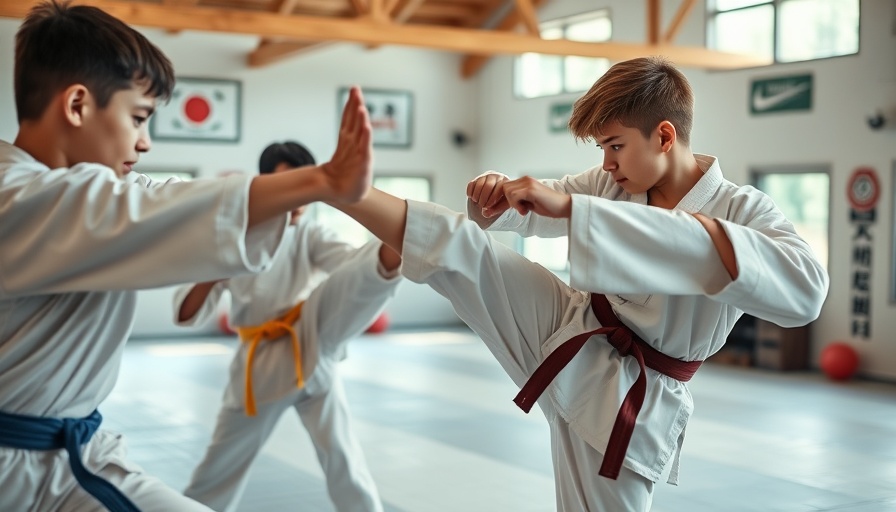
A Hidden Curriculum: The Unseen Lessons in Martial Arts
When you think of your child’s martial arts class, you might envision kicks, drills, and promotions. While those components are indeed part of the training, what often goes unnoticed are the moments that shape their character and resilience off the mat. A parent observing through the window witnesses the mechanics of martial arts, but the real personal development occurs in the quiet spaces—when no one is watching.
Invisible Growth: The Power of Perseverance
Consider your child struggling with a particular technique. They might feel a bit defeated as the class progresses without them. But in that struggle, they learn perseverance. An older student might lend a kind word or a helping hand when they fall. These moments—the whispered encouragement, the peer support—do not make it to social media but play a crucial role in their emotional and psychological development. This process is not just about learning martial techniques; it’s about building the grit that will help them face challenges in school and life.
Unseen Connections: Building Friendships Beyond the Mat
Often, parents overlook how martial arts also fosters deep connections among students. A shy teen may blossom into a confident leader who warms up the class with engaging eye contact. This transformation isn’t typically showcased in testing sheets or belt ceremonies, but rather in the way they high-five their sparring partner or volunteer to demonstrate techniques. By the end of a course, students who were once strangers often find themselves forging friendships that extend beyond the dojo.
Martial Arts as a Tool for Emotional Health
It's not just physical skills that students hone; martial arts profoundly impacts their emotional health. Practices like karate or taekwondo act as therapeutic outlets, helping children learn to manage anxiety and build mental resilience. The mindfulness developed through fighting techniques encourages personal reflection and clarity—an essential aspect for children facing the emotional turbulence of adolescence. This emotional fitness can be as critical as physical strength in their overall development.
Lessons in Leadership: More Than Just Self-Defense
Martial arts training instills leadership skills that are invaluable for personal growth. Students learn to lead warm-ups, assist new members, and take initiative in class. These experiences foster self-confidence and establish a sense of belonging that transcends mere participation in physical activity. In environments that emphasize teamwork and mentorship, young martial artists cultivate skills that translate into their academic and social lives.
Practical Tips for Parents: What to Look For
So, how can parents become more engaged in this unseen journey? Here are a few insightful sticking points:
- Ask Questions: Engage your child about their day. Inquire about their experience, focusing on the challenges and victories that occurred away from your sight.
- Attend Events: Whenever possible, participate in belt promotions or school events and take time to connect with instructors to appreciate the unseen developments taking place.
- Encourage Reflection: Foster discussions about emotions and behaviors they’re learning to manage through martial arts, such as dealing with frustration and developing resilience.
Final Thoughts: The Lasting Impact of Martial Arts
Martial arts is not just a sport; it is a life-altering practice that can shape character, resilience, and emotional fitness. Children learn skills that influence how they navigate their relationships and challenges, both on and off the mat. As parents continue to support their children’s journeys, recognizing these silent victories can deepen the impact martial arts has on shaping not just fighters, but well-rounded individuals prepared to handle life's adversities with grace and grit.
This isn't merely about earning a new belt; it's about recognizing how martial arts transforms lives in ways that parents may never witness firsthand. The next time you sit waiting outside the dojo, take a moment to reflect on the invisible yet profound growth your child is experiencing within.
 Add Row
Add Row  Add
Add 




Write A Comment